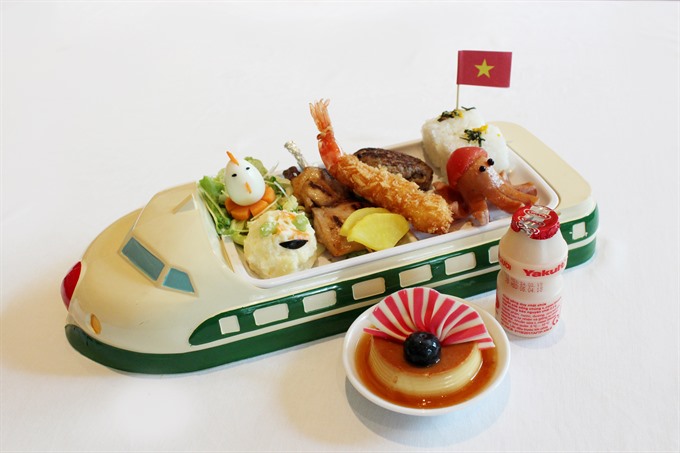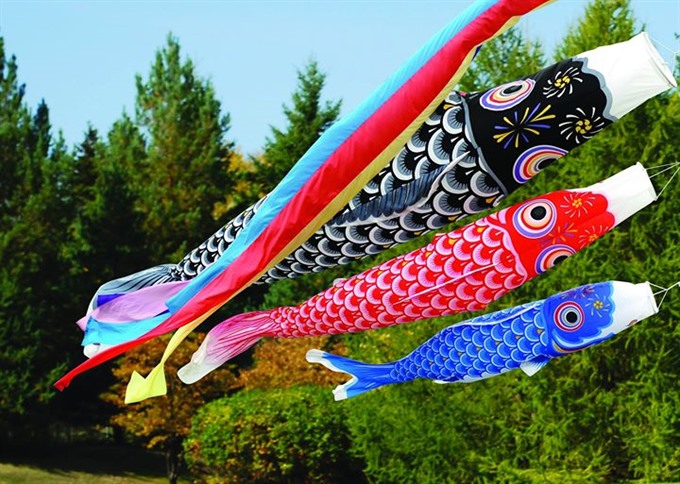 |
| A children set lunch okosama offered by Hotel Nikko Hanoi. — Photos courtesy by the hotel |
Viet Nam News
HA NOI — In Japan, May 5 is observed as Children’s Day, or Kodomo no hi. This is an important occasion during the Japanese Golden Week – a long break lasting seven to 10 days, coinciding with many national holidays.
Since a long time, koinobori has become a symbol of Japanese Children’s Day. In the Japanese language, koi means “carp”, while nobori means “flag” or “banner”. Koinobori is made by drawing carp patterns on paper, cloth or other non-woven fabric and is usually hung on a high pole in the front yard or above the roof of the house to flutter in the wind.
Koinobori originated from an ancient legend in China, in which carps fought their way up rapidly flowing streams of the Yellow River and eventually became dragons. Because of its strength and determination to overcome all obstacles, the carp symbolises courage and the ability to attain high goals. Families hang koinobori in their homes in honour of their children for a good future, with the hope that they will grow up healthy and strong.
To celebrate Japanese Golden Week and Children’s Day, from April 27 to May 6, Hotel Nikko Hanoi will host a display of a giant train model and traditional toys, sushi and cupcake cooking classes, drawing, origami lessons for children, yukata (summer kimono) try-ons and posing as well as a lucky draw and gifts for children.
During the Golden Week, the hotel will also offer a special menu for children called Okosama (children’s lunch) at the price of VND120,000 per child (under 10 years old). — VNS
 |
| Koinobori has become a symbol of Japanese Children’s Day. It is made by drawing carp patterns on paper, cloth or other non-woven fabric and is usually hung on a high pole in the front yard or above the roof of the house to flutter in the wind. |
OVietnam